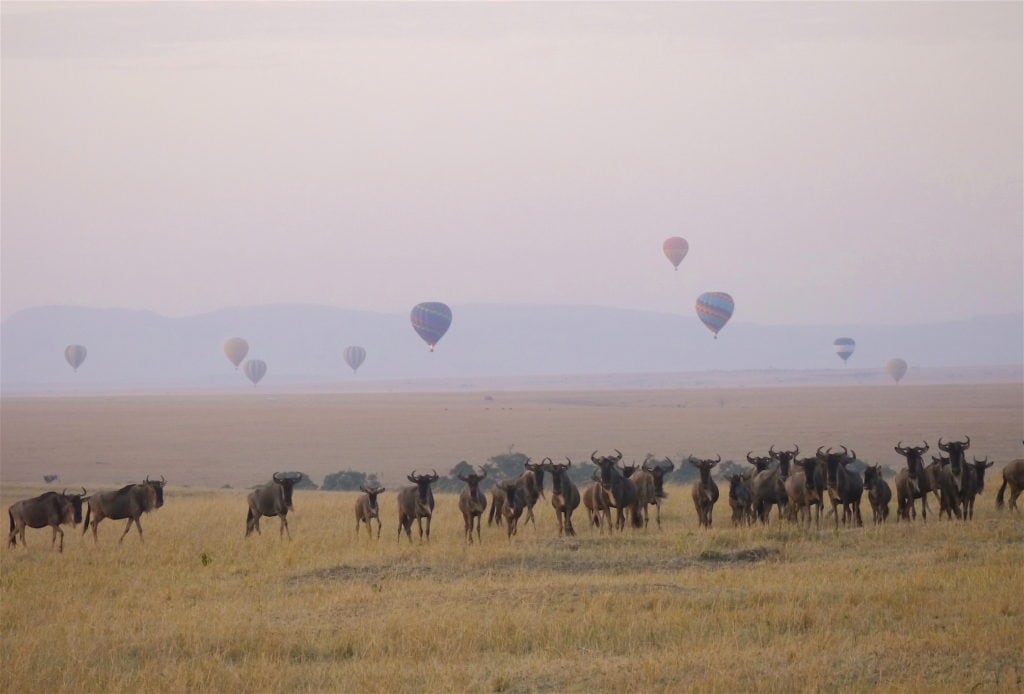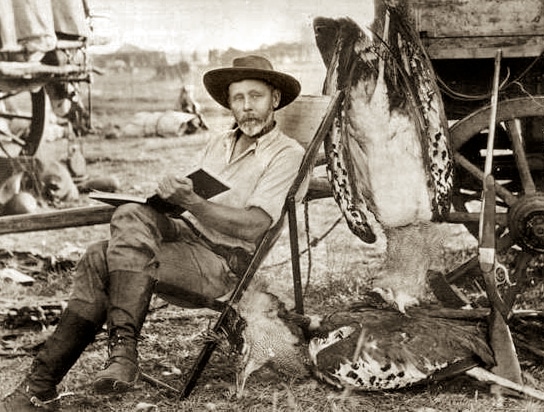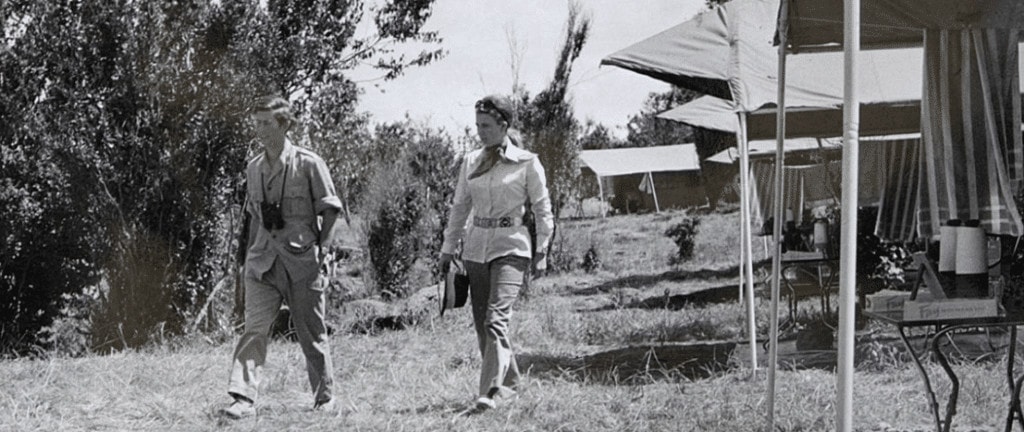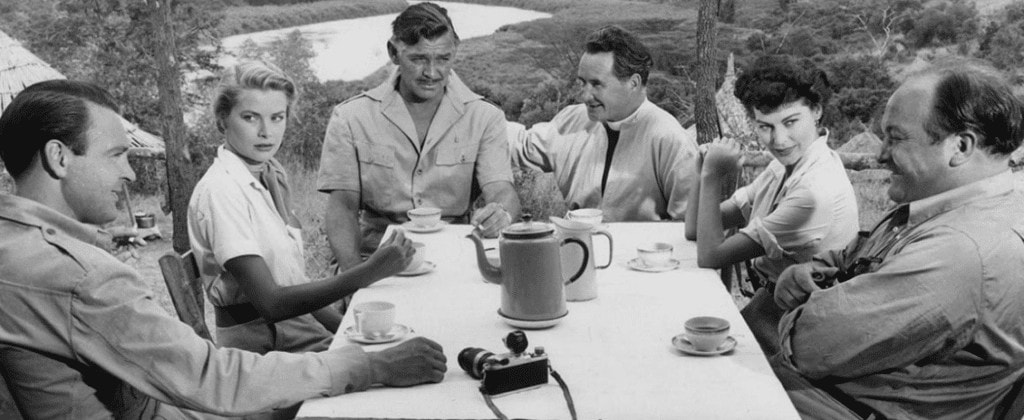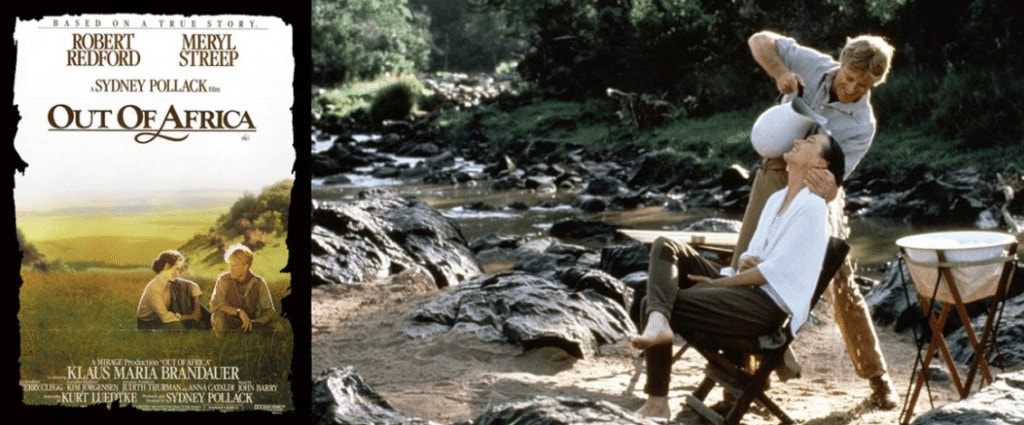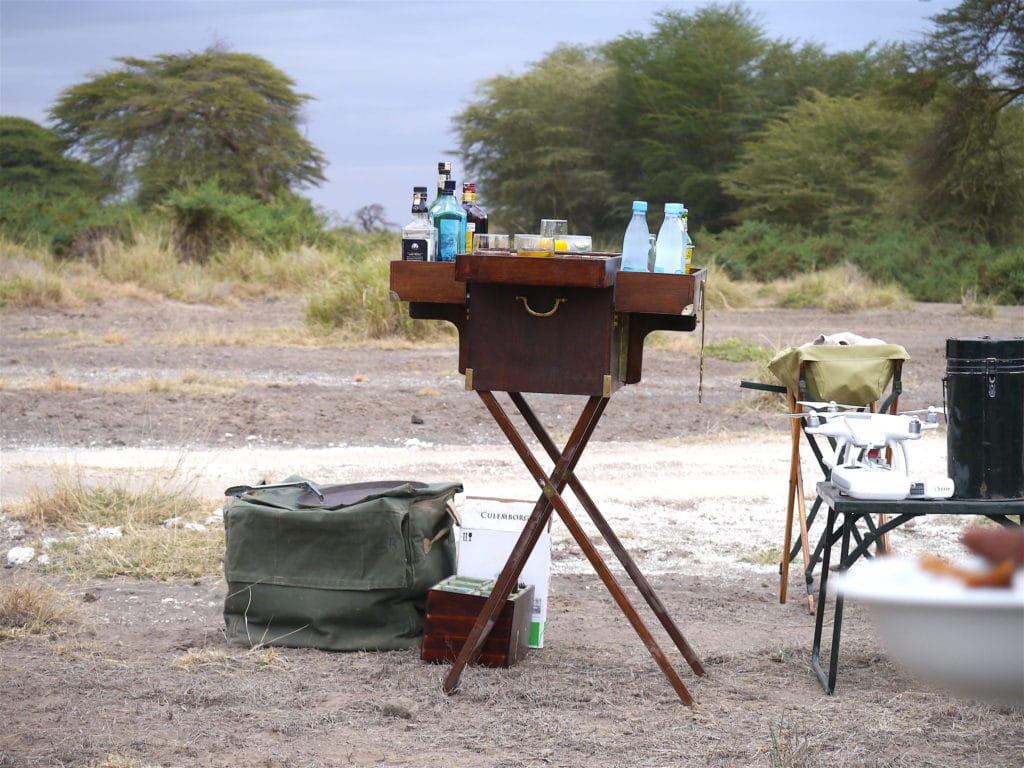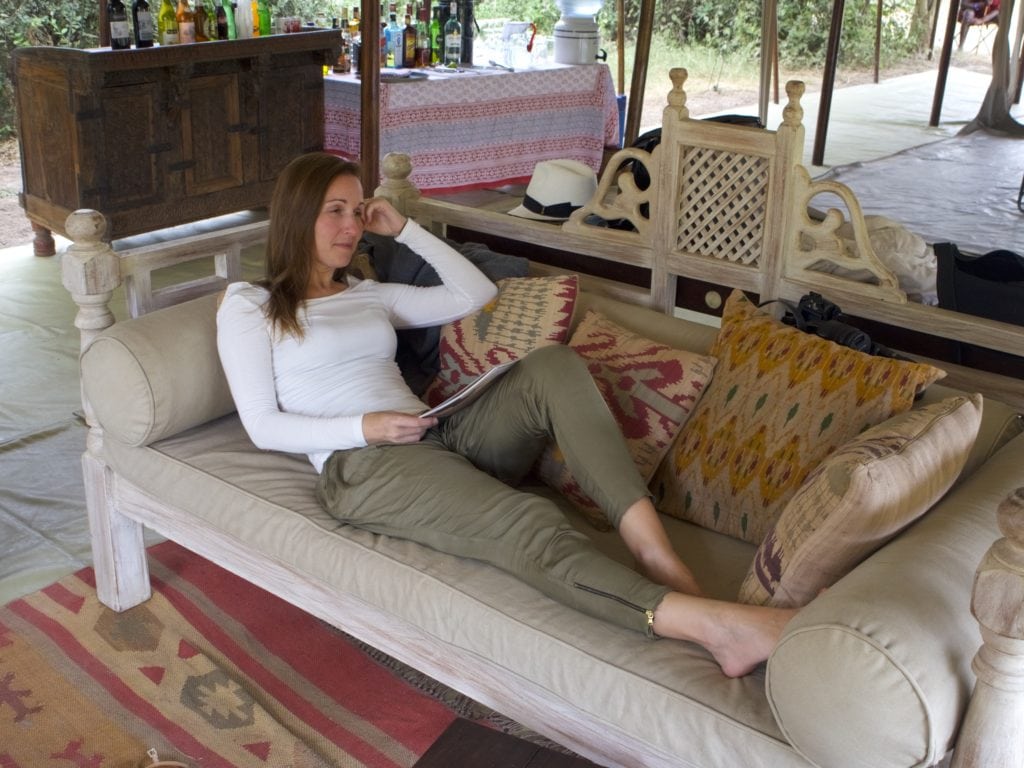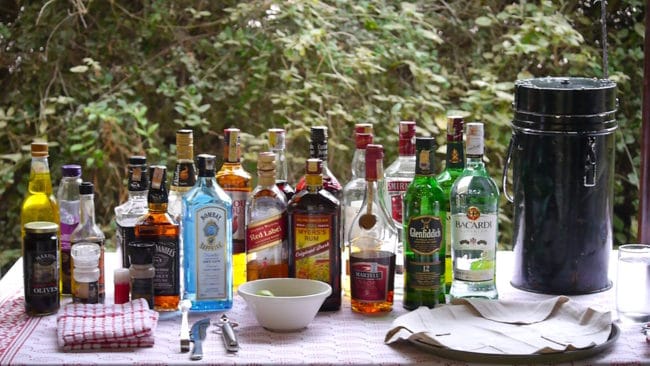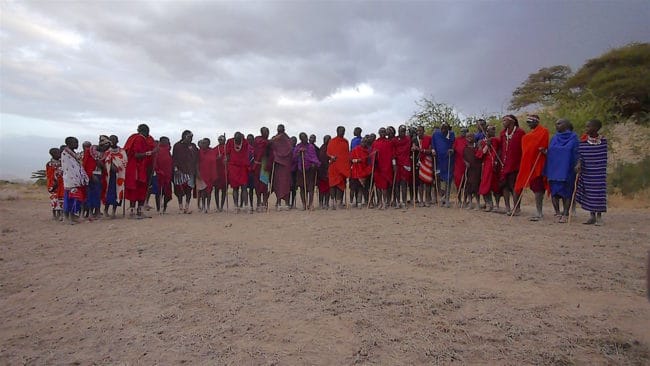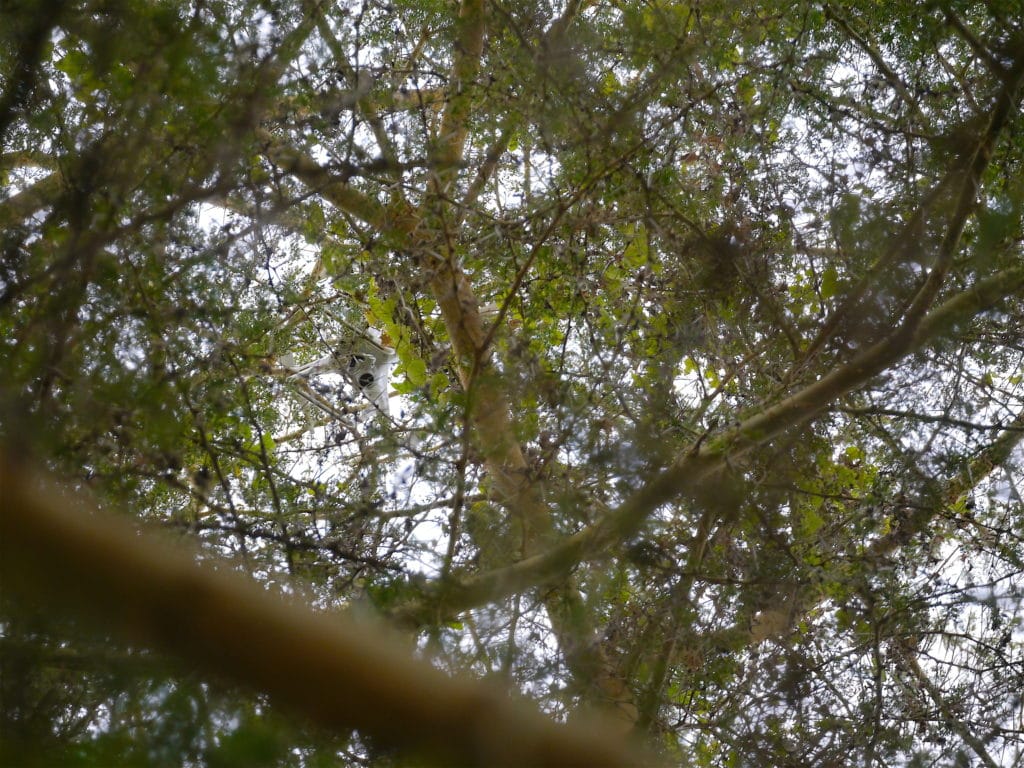The first safaris were primarily big game hunting expeditions across the African Savannah. The word safari, brought into Swahili from the Arabic, refers to a journey of any kind. It is the word still used today to express a trip by any means of transportation in East Africa. The word originated from the exchanges between nomads across the vastness of the African and Middle Eastern lands. It was this trading of goods that brought the word into the East African “lingua franca”. This connection is still tangible today in Zanzibar where the majority of the Muslim population are direct descendants of the Arab Omani traders of the 18th and 19th century.
The first safari expeditions
The first recorded safari as we know it today was a mere “journey” organised by Sir. William Cornwallis Harris in 1836 to observe African fauna. A well known Victorian traveler, Harris can be credited for the first accurate illustrations of African wildlife which he also viciously hunted after that first journey. Later on, Frederick Selous, who has a UNESCO-listed Tanzanian hunting game reserve named after him, mimicked Harris in the hunt for elephants and collected samples of many specimens for European museums, most notably over 500 specimens for the Natural History Museum of London.
Those very first explorers were as much interested in documenting wildlife as they were in dominating it with their weapons, tracking wildlife in search of the rush of the kill. But they also pioneered a daily schedule and motion that has survived until today’s safaris.
Mornings started early, after the first rays of sunlight, and were followed by long treks in search of big game before the heat of the day sent the big game to hide in the shade. There were late lunches, quiet afternoons with a cup of tea and magical evenings under the stars sharing magnificent wild stories by the camp fire. Porters carried all the necessary comforts along the expedition’s movements and the camps lacked none of the Western advances of the time. Canvas bathtubs were fashioned to order and filled with hot water. Drinks were served cold. This is still the style of travel offered at most safari lodges and camps today, with two game drives, one in the early morning and one in the late afternoon split by lazy middays by the pool or the shade, adventure book in hand. Multi-course dinners, often in communal tables, are still the perfect excuse to share travel stories and tips surrounded by the sounds of nature. It is during those dinners, of which I have enjoyed many, that I have been recommended hidden lodges, private guides and luxury experiences that I followed up on.
The era of Hollywood
Well-off aristocracy, celebrities and royalty came to Africa on hunting expeditions in search of the exhilarating rush of the kill, but they needed the able help of experienced guides who knew the terrain well and were experienced in the field. It was the sport of British colonialists and Hollywood celebrities that, when movies about Africa became popular, flocked to the mysterious land of the Big Five.
Some of those 20th century first guides were Donald Ker and Sydney Downey. Competing British big game hunters turned conservationists, they were both enlisted in the army and fought in Ethiopia during World War II. Having actively argued for game in the Mara before the war, they met at the bar of the Imperial Hotel in Addis Ababa when the war ended and decided to start what is today the longest running and oldest safari company in Africa. Ker & Downey Safaris was born on that day in 1941 as a travel company offering expeditions into East Africa.
Although they were both hunters at first, they swapped the big game kill for writers, directors and photographers and led them on the grandest African adventures ever. This is where they filmed famous movies like Hemingway’s The Macomber Affair, which was their first ever safari. This paved the way for dozens of other films. While most guides still focused on hunting expeditions, Ker & Downey took Hollywood actors and celebrities across the Masai Mara in search of the best scenes and captures. Along with their staff, they helped or even starred as stunt-doubles in the most famous movies shot in Africa such as King Solomon’s Mines, Karen Blixen’s Out of Africa, John le Carre’s the Constant Gardener, Cry Freedom or Gorillas in the Mist. They brushed shoulders with actors of the caliber of Grace Kelly, Meryl Streep, Clark Gable and John Wayne.
Ker & Downey’s work also expanded into documentaries and scientific safaris with National Geographic and they slowly favoured observation safaris and conservation efforts over hunting expeditions. It was this focus away from killing wildlife as a sport that, when the big ban on hunting was introduced in 1977 in Kenya, left them largely unaffected.
A refined way of traveling in the wildest of surroundings
The travel style portrayed and enjoyed by the characters in these safari movies, most famously illustrated in Out of Africa by hunter Denys Finch Hatton when he refused to travel without his fine china, crystal and Mozart’s recordings on the gramophone, pigeonholed safaris into a class of refined travel that only the wealthiest could afford. It also gave these expeditions a standing and magic that has survived until today. No matter how remote or isolated a lodge is, none of the comforts have been spared.
Sitting on our comfortable sofa in Ker & Downey’s Amboseli Conservancy in the south of Kenya, I enjoy a quiet afternoon break between game drives reading an adventure book, sipping on rosé and munching on fine cheese and crackers. The entire tented camp can be packed like Ikea furniture into a specially designed truck that is awaiting our departure. The bed, with iron frame and proper mattress, the flush toilets and all the furniture take the crew half a day to assemble or disassemble and usually travels between camps with the guests on the longer trips. So you always sleep in the same tent and bed, just like those early explorers used to do. Only that, today, the porters have been replaced by trucks and the roads are better paved.
The feasts that we enjoy in the evenings, complete with sundowners and imported wines, are cooked by the traveling chef on a makeshift charcoal oven or directly on the coals at camp. The water for drinking is brought over from Nairobi but washing is done with water from the river that is treated in the purifying system installed in the truck. The raw foods to whip up each meal are sourced from Nairobi based on the guests preferences, and stored in a freezer powered by solar panels. The water for the showers is heated on the coals every time you want a soak. At night, oil lamps illuminated the fascinating storytelling, while the sounds of the hyena alerting of a leopard or the monkeys scared of a lion could be heard in the distance.
Although luxury lodges with pools, designer infused decor and the finest china have sprung up since Hatton’s tantrums, the exclusivity and feeling of being one with nature in a private tented camp expedition preserves the magic those early explorers felt. With nobody else in sight other than you and your party, the bush and wildlife are yours to savour at your own pace. After dinner, drives, stargazing or even running after spring hares are all possibilities, you just need to ask your Masai guide, your link to an ancestral land.
In Amboseli, where Howard Saunders, our guide and soon to be friend, partner of Ker & Downey Safaris and founding member of the Shackleton & Selous Society, Matito and Solomon, our two Masai guides and active proponents of the Lion Guardians program, lead us through the private conservancy area belonging to their Masai community. In three days we did not see any other car other than the avid wildlife observers from the Lion Guardians who came to check up on a lioness that had been hurt.
One afternoon, as I am testing the drone “follow me” feature, I lose control and crash it onto a tall acacia tree. Worried that I have lost it forever in the thick thorny bushes, one of the Masai spots it up in the tree branches. An entire operation unfolds with all the Masai members coming to the rescue. There is a long period of diagnosis where all ideas are considered. I observe, amused, at the various ideas floating around and I regain the trust: nobody considers loss as a possibility. Two hours, one truck, one ladder and a long machete hacking exercise later, one of the Masai warriors has managed to make his way up the 6 meter tree and has brought the drone down. Slightly scratched but largely intact, I recover my flying camera with a clear message: Impossible is nothing in Africa.
This must have been what those early explorers felt, the idea that this vast continent, so unexplored, so rough yet so magnificent, teeming with wildlife and nature and flooded by the Milky Way, had to be experienced on foot, on the land, sleeping under the canvas of a tent.
- Check if you need a visa, get help processing it at iVisa.
- Never ever leave without travel insurance. Get affordable coverage from World Nomads or long term insurance from Safety Wing.
- I find all of my flights on KAYAK. Check their Deals section too.
- Search for all your transportation between destinations on the trusted travel booking platform Bookaway.
- I book all my day trips and tours via GetYourGuide, they are the best and their tours are refundable up to 24h in advance.
- Get USD35 off your first booking with Airbnb.
- Compare hotels EVERYWHERE at HotelsCombined and book with Booking.com.
- Compare car rental prices at Rentalcars.com

